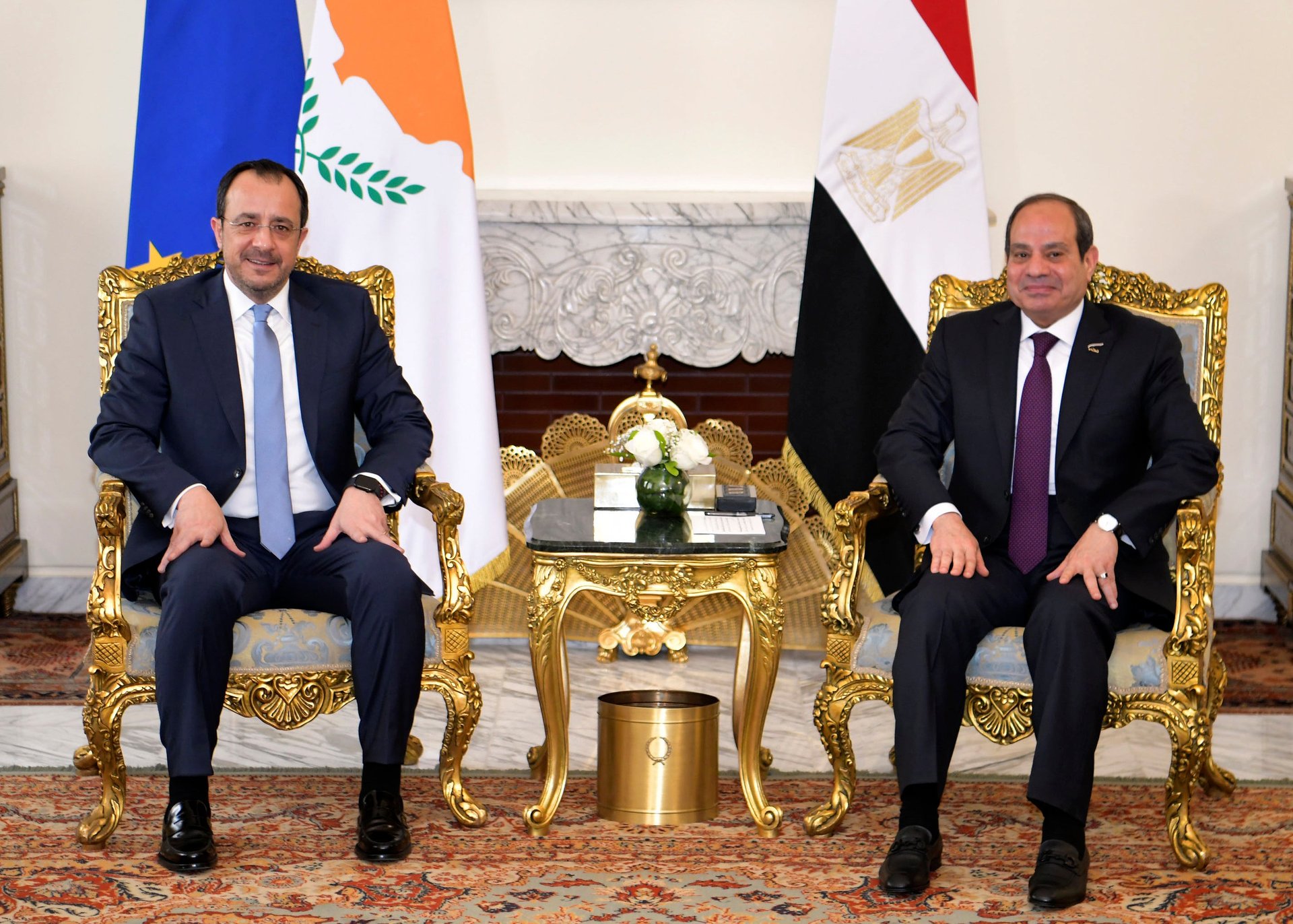The European Union announces an $8 billion aid package for Egypt as concerns mount over migration
The European Union has announced a 7.4 billion-euro or $8 billion aid package for cash-strapped Egypt as concerns mount that economic pressure and conflicts in neighboring countries could drive more migrants to European shores

CAIRO (AP) — The European Union on Sunday announced a 7.4 billion-euro ($8 billion) aid package for cash-strapped Egypt as concerns mount that economic pressure and conflicts in neighboring countries could drive more migrants to European shores.
Suggested Reading
The deal, which drew criticism from rights groups over Egypt’s human rights record, was signed Sunday afternoon in Cairo by Egyptian President Abdel Fattah el-Sissi and European Commission President Ursula von der Leyen. The ceremony was attended by leaders of Belgium, Italy, Austria, Cyprus and Greece.
Related Content
“Your visit today represented a very important milestone in the relations between Egypt and the European Union,” el-Sissi told visiting European leaders. He said the deal has achieved a “paradigm shift in our partnership.”
The aid package includes both grants and loans over the next three years for the Arab world’s most populous country, according to the EU's mission in Cairo. Most of the funds — 5 billion euros ($5.4 billion)— are macro-financial assistance, according to a document from the EU mission in Egypt.
The mission said the two sides have promoted their cooperation to the level of a “strategic and comprehensive partnership,” paving the way for expanding Egypt-EU cooperation in various economic and noneconomic areas.
“The European Union recognizes Egypt as a reliable partner and its unique and vital geostrategic role as a pillar of security, moderation and peace in the Mediterranean, Near East and African region,” a joint statement said after the summit.
Italy’s Prime Minister Giorgia Meloni, whose country played a major role in achieving the deal, lauded it as “historic.”
“This initiative shows our willingness to strengthen and encourage a new structural method of cooperation between the two sides of the Mediterranean,” she told the Egyptian-EU summit in Cairo.
The deal, known as the Joint Declaration, aims among other things to promote “democracy, fundamental freedoms, human rights, and gender equality,” according to the European Commission. Both sides will also deepen their cooperation to address challenges related to migration and terrorism.
The EU will provide assistance to Egypt’s government to fortify its borders, especially with Libya, a major transit point for migrants fleeing poverty and conflicts in Africa and the Middle East. The 27-nation bloc will also support the government in hosting Sudanese who have fled nearly a year of fighting between rival generals in their country. Egypt received more than 460,000 Sudanese since April last year.
The deal comes amid growing concerns that Israel's looming ground offensive on Gaza's southernmost town of Rafah could force hundreds of thousands of people to break into Egypt's Sinai Peninsula. The Israel-Hamas war, now in its sixth month, has pushed more than 1 million people to Rafah.
Egypt says there are 9 million migrants in the country, including about 480,000 who are registered refugees and asylum-seekers with the U.N. refugee agency. Many of those migrants have established their own businesses, while others work in the huge informal economy as street vendors and house cleaners.
For decades, Egypt has been a refuge for migrants from sub-Saharan Africa trying to escape war or poverty. Egypt is a destination and a haven for some, because it's the closest and easiest country for them to reach. For others, it's a point of transit before attempting the dangerous Mediterranean Sea crossing to Europe.
While the Egyptian coast has not been a major launching pad for human traffickers sending overcrowded boats across the Mediterranean to Europe, Egypt faces migratory pressures from the region, with the added looming threat that the Israel-Hamas war could spill across its borders.
The deal would inject much-needed funds into the Egyptian economy, which has been hit hard by years of government austerity, the coronavirus pandemic, the fallout from Russia’s full-scale invasion of Ukraine, and most recently, the Israel-Hamas war in Gaza.
Egypt reached a deal with the International Monetary Fund earlier this month to increase a bailout loan to $8 billion, up from $3 billion, after marathon negotiations. The deal with the IMF was combined with economic reforms that included the flotation of the Egyptian pound and a sharp raising of the main interest rate.
The EU deal follows the template of those recently signed with Tunisia and Mauritania that pledged funds in return for fortifying their borders. Both Tunisia and Mauritania are key points of departure for migrants crossing the Mediterranean and a stretch of the Atlantic to Italy and Spain, respectively, and they too were criticized for alleged abuses against migrants.
The package drew criticism from international rights groups over Egypt’s human rights record. Amnesty International urged European leaders not to be complicit with human rights violations taking place in Egypt.
“EU leaders must ensure that the Egyptian authorities adopt clear benchmarks for human rights," said Eve Geddie, Amnesty International's head of the European institutions office. Geddie pointed to Egypt’s restrictions on media and freedom of expression and a crackdown on civil society.
Questioned about the morality of such deals earlier this week in Brussels, European Commission spokesperson Eric Mamer acknowledged there were issues in all these countries, but defended the partnerships nonetheless.
“Yes, we know the criticism related to human rights in those countries and it is obvious that this is an issue,” he told reporters.
“Does that mean we should break off all relations? Would that lead to an improvement in the situation? Or should we try to find a way to work with those countries to improve the situation on the ground both for local populations and for migrants coming to those countries?” he said.
___
Associated Press writers Renata Brito in Barcelona, Spain, and Lorne Cook in Brussels, contributed to this report.